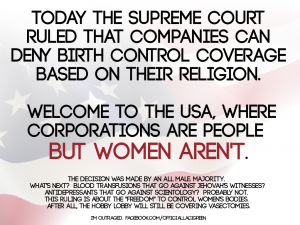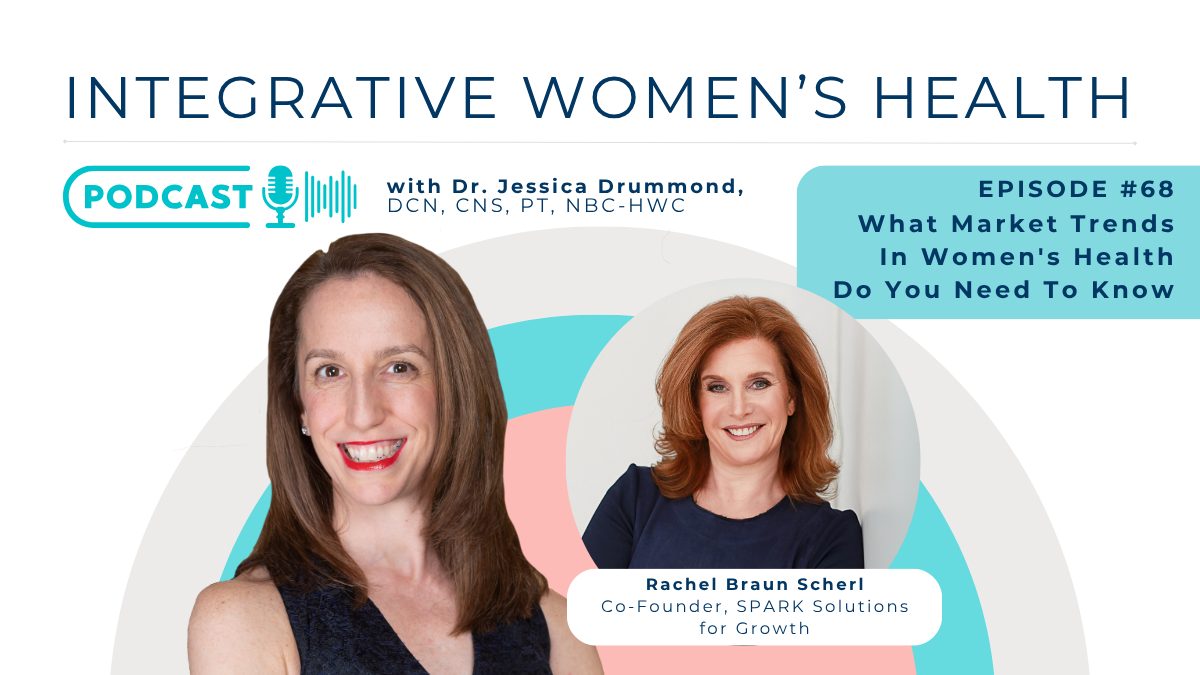There was a small firestorm of controversy on my Facebook page reflective of the media firestorm of controversy after the Supreme Court’s recent decision to allow Hobby Lobby to limit the contraceptive choices it will pay for for its employees who are covered by their health plans.
I’ll admit it, I felt immediately irritated as well.
My irritation was triggered by the above Facebook image created by Laci Green, a 24 year old sexuality educator with the largest sexuality education show on You Tube.
I love that she’s fighting for women’s sexual health rights, because we absolutely need her activism. I checked out her You Tube show and it’s excellent. Definitely a great resource for my girls as they get older. I love this video about sexual consent. It’s so clear, and approachable.
But, the image that she created above is a bit misleading.
Though I must agree that there’s a growing culture in our society of giving organizations and fetuses rights that overtake the rights of adult women, that’s a detailed conversation for another day.
When it comes to this case in particular, there are a few things that are important about this ruling to understand before we make rash judgements.
When I dug into the unbiased details about this case, I found some interesting stuff…
- It’s true that Hobby Lobby (well, actually it’s private owners) will provide and pay for 16 of the 20 available and legal birth control options to all of its employees.That includes birth control options for men and women. The private owners of Hobby Lobby sued to exclude the other four because they believe that those could cause an abortion. Specifically, that those could halt the ability of a fertilized egg to implant by biologically altering the uterine wall. Scientifically, that is absolutely not true based on published studies for at least one of the four methods (Plan B.) The other three, could potentially inhibit a fertilized egg from implanting by thinning the uterine lining, but that is not the main mechanism. These four forms of emergency contraception delay ovulation (especially Levonorgestrel, aka Plan B.) None of the male forms of birth control are limited, and there is no scientific evidence that any of these forms of birth control cause abortions by the ACOG definition. (Though that could be in conflict with some Catholic interpretations of making it potentially more difficult for a fertilized egg to implant.)
- I was glad to find in my research that the scope of this decision is fairly limited and can not be applied to publicly held companies.
- The cost of this one time use of emergency contraception is between $30 for an oral, over the counter, emergency contraceptive pill and $900 for a copper IUD insertion.This may not seem like much, but for an employee making minimum wage, that’s more than 2 hours of work, and up to more than three weeks worth of work. Yikes! (Of course, if she becomes pregnant because of her lack of ability to access EC, the costs are much higher.)As a small business owner myself, I am glad to see that my religious freedom could be protected by this case. Let’s say that I hold a religious belief that comes into conflict with something I am required to pay for for my employees by a federal law. Let’s just make up an example… let’s say my religion forbid haircuts, and I am suddenly required by law to pay for several haircuts each year for my employees. (And, I am a closely held, private corporation.) I can see how if that were against my religious beliefs, I would not want to be required to do so. But, to argue against myself, haircuts are rarely a necessary healthcare procedure that I would be denying my most vulnerable employees (those making the least money and who might have been sexually assaulted while unprotected by contraception.)In this specific case, the Christian owner of Hobby Lobby is religiously opposed to birth control. So, my question is, why just single out these four forms of birth control? This ruling would feel far less oppressive to women from my perspective if this ruling exempted this Christian corporation from paying for all forms of birth control including vasectomies and male condoms. It worries me that it is the forms of birth control that are used by women in the most vulnerable situations that have been singled out.
I would love to hear what you think about this ruling? Share your thoughts in the comments below…
Warmly,








